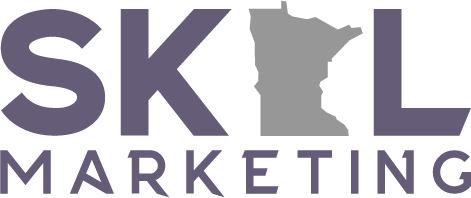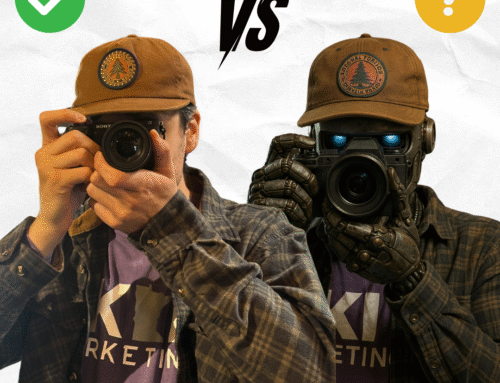Hashtags were once a valuable and essential tool for posting on social media. Content creators would fill their captions with hashtags, hoping to help get their work seen by millions. What was once a helpful way to get your content seen and connect with a broader audience may not be quite as effective as it once was. Due to the increased complexities of social media algorithms and the rise of AI, hashtags have become less beneficial and run the risk of being harmful if not used correctly. The big question being asked and the reason why you are here is, “Are hashtags still relevant to use?” The short answer is yes, they are, but you need to be mindful of how you use them.
What is the Point of a Hashtag?
Hashtags are words or phrases that follow the # symbol. The three primary purposes of a hashtag are to categorize posts, connect people with similar hobbies or interests, and identify topics. Hashtags are a great way to make your content searchable for users. Creators and social media managers use hashtags to help reach a broader audience that does not follow their page but may follow the hashtags used in their posts, thus connecting people to pages that share similar interests.
Do People Still Use Them?
Again, the short answer is yes, people are still using them; however, there has been a decline in recent years. People are no longer reaping the benefits of using a lot of hashtags in their posts, especially on Instagram, as much as they used to. On the other hand, Twitter has shown to promote the use of hashtags still, and users have noticed the benefits of them more so than other platforms. It again comes down to being mindful of how you are using them and where you are using them. Not all platforms will promote your posts the same when using hashtags.
How to Use Hashtags in 2024
Here are some basic tips on using hashtags in 2024. Don’t use too many hashtags in your posts. Using too many hashtags in your captions may negatively affect your post’s performance. The algorithms are becoming advanced and will flag all the hashtags as spam. It will also ban any inappropriate hashtags.
Only use hashtags in your captions. Using them in your bio or comment section has become outdated and ineffective. Save them for your copy.
Next, be mindful of trending topics/hashtags and their meaning. The last thing you want is to jump on a hashtag trend and have it backfire because you didn’t understand the reference or true meaning, which may be harmful or unprofessional.
Use hashtags that relate to your content. For example, if you are a coffee shop, you shouldn’t use hashtags related to travel or sports. You should be using hashtags that relate to your services or products.
Lastly, I want to discuss some specifics about using hashtags on different platforms and how to navigate them. Social media is constantly changing, and not every platform’s algorithms react similarly to hashtags. Let’s jump right in.
#Facebook:
When it comes to using hashtags on Facebook, they are not super helpful. Hashtags won’t help your engagement or reach as much as other platforms would. Hashtags didn’t become relevant on Facebook until they acquired Instagram in 2012, and even after that, they never fully became integrated into the Facebook experience. Facebook will always prioritize content users have paid to promote, so using hashtags isn’t always necessary. The primary purpose of using hashtags on Facebook is to categorize your content and make it searchable for users.
Our recommendation is to use 2-3 hashtags on a post. Again, using a block of hashtags risks being spammy and will not boost engagement and reach.
#Instagram:
For years, using large lists of hashtags on the platform was a great way to get views on your posts. However, this led to spammers being able to get their content in front of users who had never shown interest in the content being shown to them. It was a flaw in the algorithm that has now been updated.
Our recommendation is to use around 3-5 hashtags in your posts. You can use more, but we highly recommend not using more than ten hashtags in a post.
#X (previously Twitter):
Hashtags are still recommended for X. However, hashtags count towards your character limit, and they can eat up many of those characters, especially if you are using the free version of X, which only gives you 280 characters.
Our recommendation would be to use 1-3 hashtags.
#LinkedIn:
LinkedIn is one of the best platforms for using hashtags to boost social engagement. The platform’s professionalism and paid subscription version have led to less spam activity regarding hashtags, keeping them relevant and effective.
Our recommendation is to use 1-5 in a post.
#TikTok:
There is a lot we still need to learn about the TikTok algorithm. Hashtags are not necessary to get a lot of reach on a post, and many videos have gone viral with little to no hashtags being used. One benefit of using them on TikTok is for joining in on viral trends or challenges.
Our recommendation is to use 3-5 hashtags in a post.
#YouTube:
YouTube is one of the platforms that relies least on hashtags. Improving your reach and engagement on YouTube relies more on using relevant keywords versus hashtags. A strong title, an optimized channel, and an eye-catching thumbnail are FAR more important than a couple of hashtags in the caption.
We recommend using 3-5 hashtags in the captions of your videos. Similar to Instagram, we recommend not using more than 10.
The Fall of Hashtags
We recommend continuing to use hashtags in your social media posts; however, to better use them in your social media strategy, it’s essential to understand some of the changes in the social media landscape and the challenges that hashtags now face.
Some of the flaws of hashtags are that there are so many social media accounts, and the probability of getting discovered using hashtags alone is becoming increasingly slim as social media changes. This is because so many people are using the same hashtags, making them crowded and oversaturated. This is, again, why it is important to find niche hashtags to use that relate to your content.
Another flaw is that hashtags have become so spammed on posts over the years that the platforms have deemphasized their importance.
Lastly, the rise of AI and advanced algorithms is making hashtags less important. Technology can easily identify the language in your content and understand who and where to promote it without the use of hashtags.
Conclusion
Social media is a vast and complicated arena that is constantly changing. It is essential to know the positives and negatives of all the tools at our disposal, such as hashtags. Think of hashtags like a hammer. Hammers are great for nails but not so great for screws. Just like hashtags are great for Twitter and LinkedIn but not as effective for YouTube. Both are tools that you need to learn how to use.
If you still need help understanding hashtags or finding proper hashtags to include in your social media strategy, there’s no need to worry. Skol Marketing is here to assist you! We may not be able to teach you how to use a hammer, but we can help you with hashtags. Contact Skol Marketing today, and let’s build your social media presence into something special. #Skol







